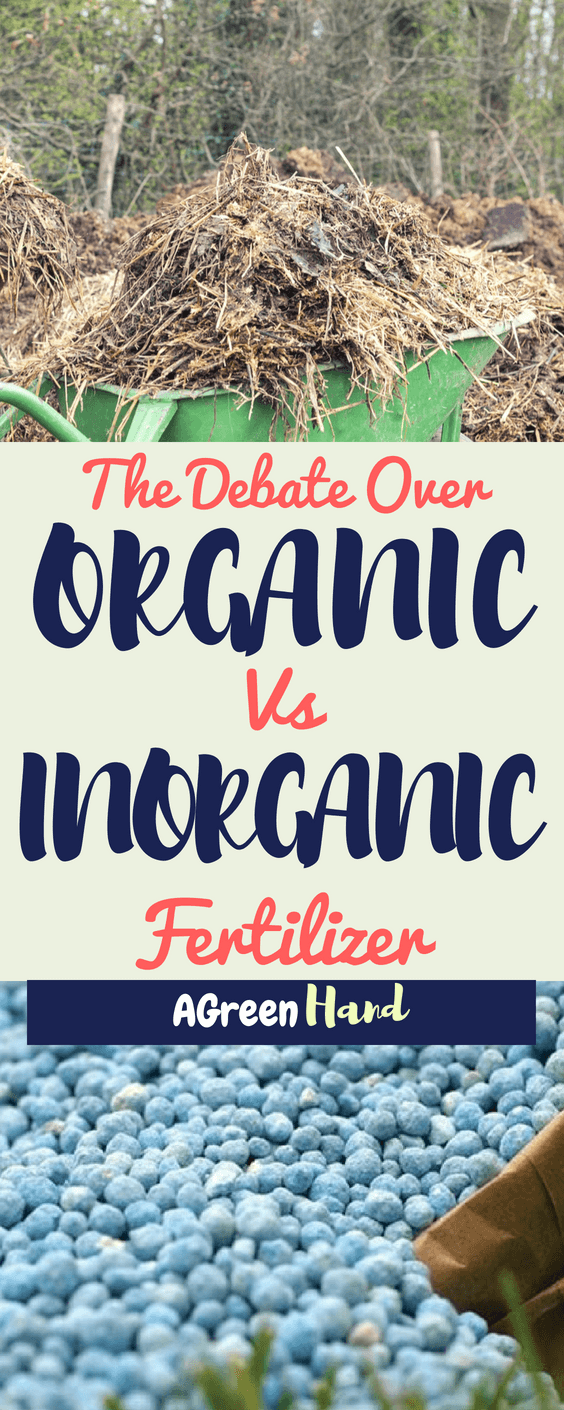Plants need nutrients so they can grow strong and healthy. Plants get most of their nutrients from the soil. Fertilizers provide the soil with large amounts of macronutrients to supplement what it already has. The question is should we use organic or inorganic fertilizer. Which is the most beneficial for plants?
Water, sunlight and nutrients are compulsory for strong and healthy plants. Picking the right kind of fertilizer will help you achieve the results you desire.
Organic and inorganic fertilizers are made up of different ingredients and provide plants with nutrients in different ways.
In general, organic fertilizers provide plants with a suitable environment for growth. Inorganic fertilizers supply plants with immediate nutrition. What is best for your plants is dependent on what your plants need and what you prefer in terms of its effect on the environment and cost.
While the choice of fertilizer is based on your preference it is best to know between organic and inorganic fertilizers, which are best for your plants. Read on some facts about both kinds of fertilizers so you can make an intelligent choice.
#1. Ingredients
Organic fertilizers contain only either animal or plant-based ingredients. These ingredients are either an end-product or a by-product of processes which naturally occur in plants and animals. They could be leaves, manures and compost.
Inorganic fertilizers are artificially manufactured and contains synthetic chemicals. Natural gas or petroleum make inorganic nitrogen fertilizers. Potassium, phosphorous and other so-called trace minerals are mined.
#2. Nutrients
Organic fertilizers undergo minimal processing and are not extracted and processed, thus nutrients remain in natural forms. They are released on moist and warm soil. But this process takes place gradually as organic matters are slowly broken down by soil organisms. While it takes time to receive the nutrients, leaching out is avoided. The ratio of nutrients found in organic fertilizers are not known.
Inorganic fertilizers are refined so nutrients can be extracted and combines with chemical fillers. They, on other hand, immediately provide plants with nutrients. The fast release process might let nutrients leach out and go deep into the water source and soil and thus not go directly to plants. With inorganic fertilizers, ratio of nutrients are included in labels.
#3. Usage
When you use organic fertilizers you can never be sure if they are what exactly your plants need. Because compost and manure are never tested in laboratories.
When you use inorganic fertilizers you know exactly the amount of any given element and its application rate.
#4. Effect
Organic fertilizers improve the soil’s structure as well as its capability to hold nutrients and water.
Inorganic fertilizers make plants grow but do not make the soil healthy.
#5. The Working Mechanism
Organic fertilizers are release slowly thus preventing over fertilizing. These type of fertilizers also does not cause toxins, such as salt, to build up and cause harm to plants.
Nutrients in inorganic fertilizers are immediately available for application thus over fertilizing is always a possibility. Applying to much fertilizer can kill plants and the ecosystem, too.
#6. Waiting Time To See Improvement
It takes time for organic fertilizers to release nutrients because they still need to be broken down by organisms. After application you may have to wait for some time to see visible improvements. You may even find your plants deficient in nutrients during the first few months. Be patient and in time you will see results.
With inorganic fertilizers, nutrients are readily available for the plants. Improvements begin to be visible only after a few days.
#7. Price
Organic fertilizers can be expensive. Over time, the benefits your plants and soil will get will be worth the extra expense. On top of such benefits is soil improvement.
Inorganic fertilizers are cheaper than organic fertilizers but it does not improve the soil’s quality much.
#8. Impacts On Environment
Toxic wastes are most unlikely to build up in organic fertilizers provided organic materials completely decompose. Only a few fossils fuels are needed in the production of organic fertilizers. As such, only a level of greenhouse gases are released.
Heavy applications of inorganic fertilizers cause toxic wastes to build up in the soil contributing to the high releases of greenhouse gasses.
As earlier mentioned, the choice of whether to apply organic vs inorganic fertilizer depends on you. If you want to have a clean environment and improve the nature of your soil, organic fertilizer is for you.
If you want to have the greenest lawns and the biggest tomatoes, inorganic fertilizer is for you.
Which type of fertilizer have you used? Do you have any experience in applying both organic and inorganic fertilizers in your lawn and garden? Share with us dome of your thoughts on organic vs inorganic in the comments section.


